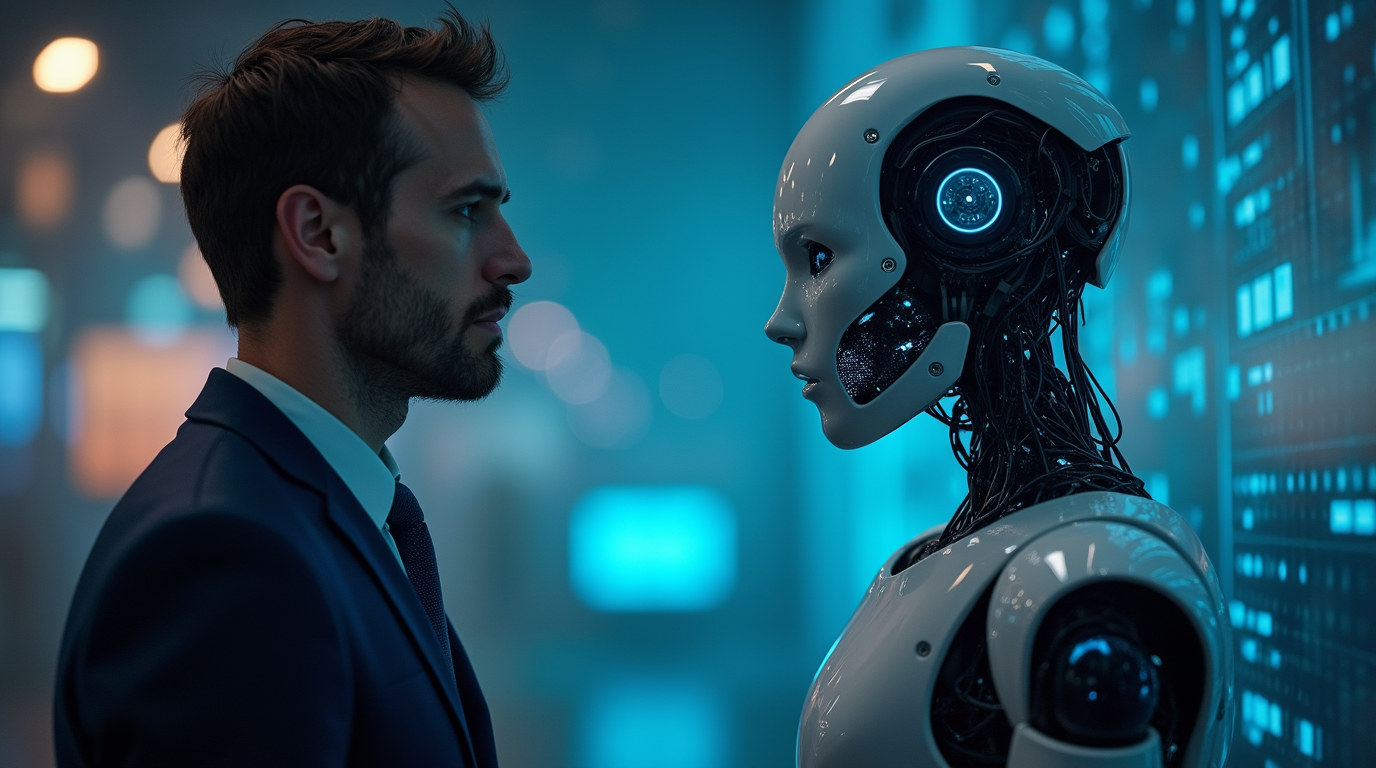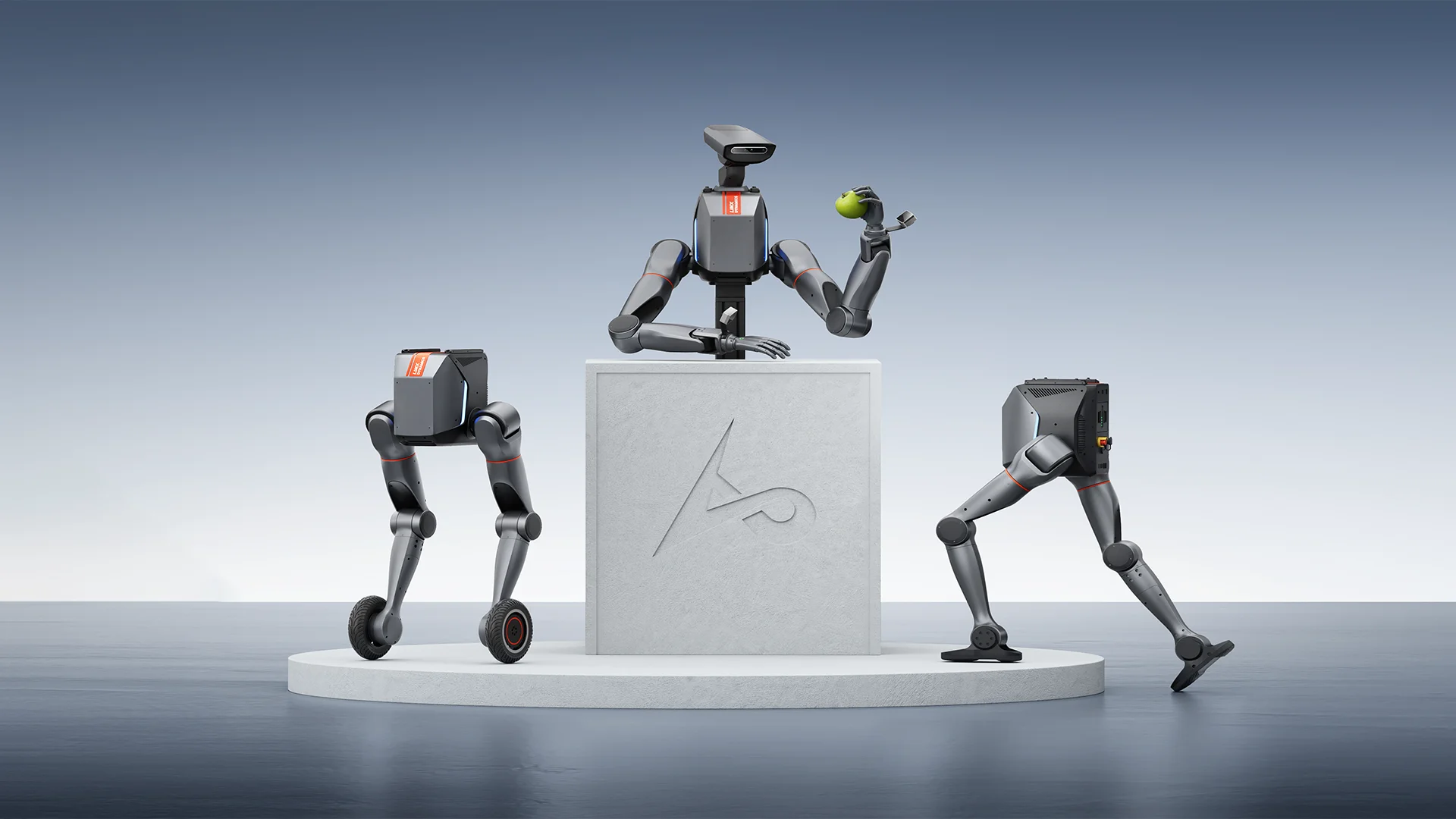Artificial intelligence (AI) has rapidly transformed the global business landscape in recent years. For entrepreneurs, this is a tremendous opportunity but also a significant challenge. What is the role of man in an increasingly automated world? How can AI enhance human capabilities while raising ethical and strategic issues? In this article we will explore the comparison between AI and man in terms of capacity, limits and future prospects, with a focus on the implications for entrepreneurs.
1. Artificial intelligence: a revolutionary tool
AI can be defined as the simulation of human intelligence by machines programmed to learn, reason and solve problems. In recent years, technologies such as machine learning, natural language processing (NLP) and computer vision have enabled practical applications in sectors such as finance, healthcare, retail and logistics.
Concrete examples of AI applications
Personalized marketing: platforms like Amazon and Netflix use algorithms to suggest products and content tailored to each user.
Industrial automation: companies like Tesla integrate AI into production processes to optimize efficiency and reduce costs.
Finance and data analytics: banks use AI to detect fraud, assess credit risks and improve the customer experience.
2. The man: the irreplaceable engine of creativity
If AI excels in repetitive and analytical tasks, the human being is distinguished by creativity, empathy and ability to adapt to new and unpredictable contexts. These characteristics remain fundamental in an innovation-driven economy.
Human strengths compared to AI
Critical and strategic thinking: humans can evaluate complex scenarios and make decisions based on intuitions and values.
Empathy and leadership: essential qualities to manage teams, build relationships and lead organizations towards shared goals.
Creative innovation: Areas such as art, design and branding require insights that AI cannot replicate.
3. AI vs Man: a direct comparison
For entrepreneurs, understanding the strengths and weaknesses of AI and man is crucial to making strategic decisions. Let us look at some key areas.
Operational efficiency
AI outperforms humans in speed and accuracy when it comes to processing large amounts of data. However, machines require human supervision to ensure that results are accurate and relevant.
Decision-making ability
Although AI can support decisions with data-driven analysis, it lacks the ability to assess qualitative aspects such as human emotions or ethical implications.
Adaptability
AI can learn from new data, but it is limited by what has been programmed. Man, on the other hand, can adapt quickly to radical changes or unknown situations.
4. How to integrate AI and human talent
The aim is not to choose between AI and man, but to create a synergy between the two. Entrepreneurs must adopt strategies that combine the best of both dimensions.
Models of human-AI collaboration
Assisted automation: AI performs repetitive tasks, leaving time for creative and strategic activities.
Advanced analytics: AI tools provide data-driven insights, while humans interpret and implement them.
Continuous learning: both AI and man can improve continuously through mutual feedback and updates.
5. The ethical and practical challenges of AI
Despite the benefits, there are also risks and questions associated with adopting IA.
Impact on employment
Replacing manual and repetitive tasks with AI could lead to a reduction in jobs in some sectors, requiring governments and companies to invest in retraining.
Bias and discrimination
AI algorithms are influenced by the data they are trained on. This can lead to decisions that reflect unconscious bias, with negative consequences for users and customers.
Transparency and trust
Entrepreneurs must ensure that the use of AI is ethical, transparent and customer-centric, not sacrificing trust for short-term efficiency.
6. The future: man and AI as allies
Looking to the future, it is clear that AI and man are not rivals but indispensable partners. Entrepreneurs who exploit this synergy will drive innovation in their sectors.
Emerging innovations
Generative AI: tools like ChatGPT and DALL-E will revolutionize creativity and design.
Robotic collaboration: intelligent robots will work side by side with humans in factories and offices.
Predictive technologies: Advanced AI will enable accurate forecasting in areas such as health, climate and financial markets.
The role of entrepreneurs
Entrepreneurs must take an active role in shaping the future of AI by investing in inclusive training, technology and policies.
Conclusion: a winning balance
The confrontation between AI and man is not a competition, but a matter of balance. Entrepreneurs have the power to create ecosystems in which artificial intelligence amplifies human capabilities, enabling companies to thrive in an increasingly competitive global market.
By adopting a strategic and responsible approach, AI can be transformed into a powerful ally to face the challenges of the future and seize the opportunities of innovation.






